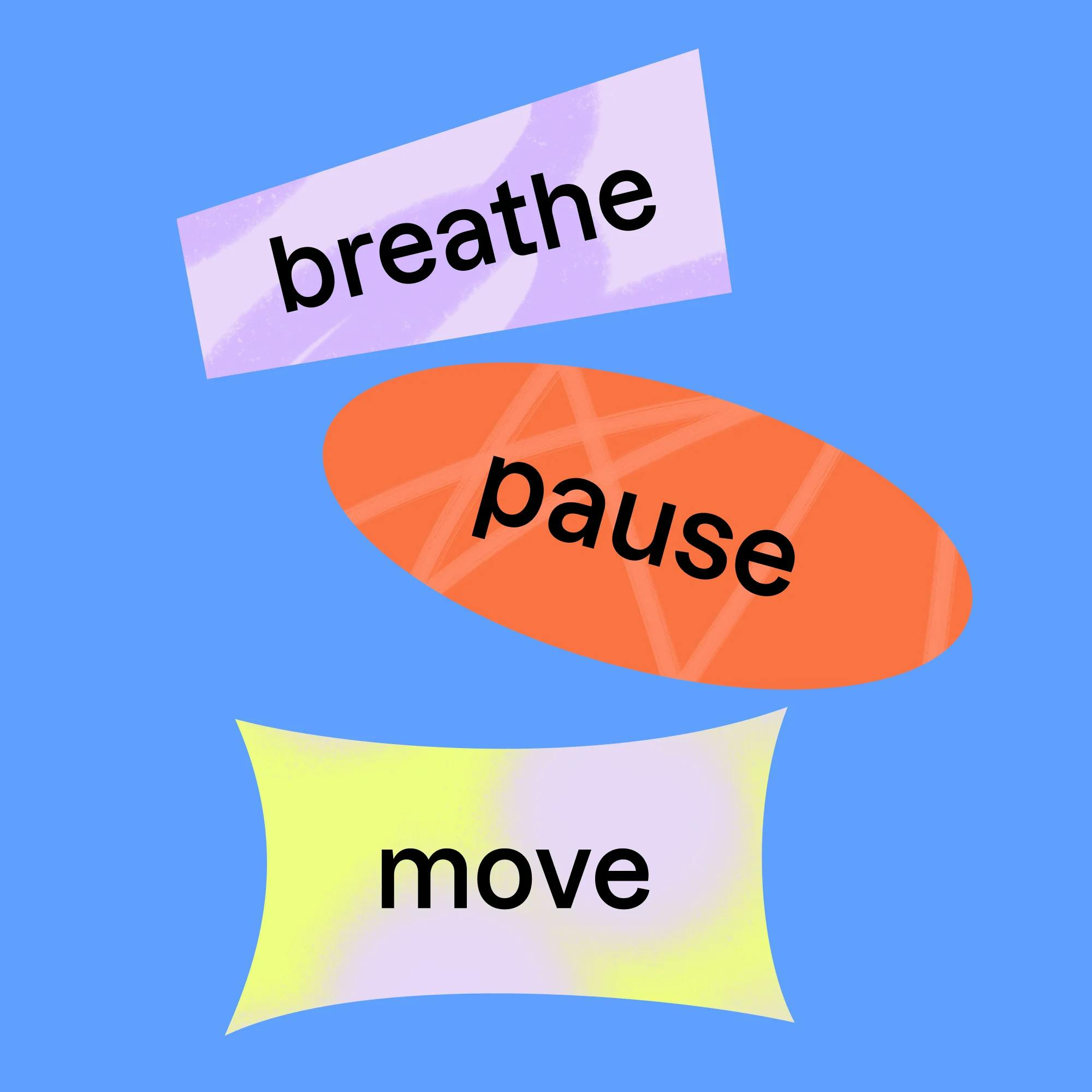
Recent Research: “Speech Spontaneity” Helps People Who Stutter Feel Better About Their Speech
 Abby Barnes, M.S., CCC-SLP
Abby Barnes, M.S., CCC-SLP
You might think that for people who stutter, speaking smoothly would make them feel more positive about their communication. But recent research into speech spontaneity–or speaking freely, without planning how you’ll form the words–had some surprising results.
This research confirmed the value of a speech therapy approach used at Expressable. Our speech therapists help people who stutter find freedom, ease, and empowerment in using their voice, whether a stutter occurs or not. In other words, we believe that happiness in communication isn’t tied to speaking perfectly or “fixing” a stutter. This research backs that up!
Let’s take a closer look at the study and what it means for people who stutter.
Support for people who stutter
Speech therapy can build your confidence and help you speak more freely. Find the right speech therapist for the support you need.
 Get started
Get startedWhat aspects of stuttering did the study focus on?
The researchers set out to look at the spontaneous speech of those who stutter. Spontaneous speech is related to speaking in everyday situations, without planning or thinking about what to say or how to say it. The study calls this speech “characterized by little premeditation and effortless production ... it is enjoyable and meaningful.”
Most research on stuttering looks at speech fluency, or the smoothness of a person’s speech. This study was one of the first to look at spontaneous speech in people who stutter.
To complete the study, the researchers surveyed 44 people who self-identified as a person who stutters. The participants had to score a severity of at least a “very mild” stutter on the Stuttering Severity Instrument–Fourth Edition, or an adverse impact score greater than “mild” on the Overall Assessment of the Speaker’s Experience of Stuttering.
Joseph's story
Discover how Joseph, a preteen who stutters, transformed his speech, confidence, and sense of control.
 Read Joseph's story
Read Joseph's storyThe participants were surveyed 5 times a day in phone conversations, for a total of one week’s time. They were asked a series of questions about their conversations each day, such as:
Who they spoke to
Whether the other person knew about their stutter
Whether the other person stuttered as well
Where these conversations took place
The skills needed during the conversation (for example, speaking while multitasking would be a higher skill situation)
The participants were also asked how spontaneous they felt their speech was, as well as how fluent they felt they were.


What did the study find?
The results showed that even though spontaneity of speech and fluency can be connected, they are independent of one another. Most significantly, the participants reported that speaking more freely caused them to not feel as negative when they stuttered. Being able to say what they wanted to say, when they wanted to say it, made them feel better about their communication.
This is important for a few reasons. In the past, stuttering treatment has mainly focused on teaching people to stop stuttering or to stutter less often. This approach can be challenging and frustrating for people who stutter, since it treats stuttering as something negative, to be “cured.” Stuttering is not a mental disorder or learning disability. Stuttering is a difference in verbal communication, or a form of verbal diversity. It’s part of a person just like the color of their eyes.
Studies like this are helping to transform the way speech therapy works for people who stutter, as well as the way people understand their own stuttering.


What is the best therapy for stuttering?
Speech therapy for stuttering should focus on empowering people to talk more freely, without letting their stuttering hold them back.
Expressable speech therapist Heather Gross, M.S., CCC-SLP, has years of experience working with people who stutter. As she explains it, “This research shows that having increased fluency had little to no impact on a person's quality of life. In fact, having more spontaneity was associated with reduced adverse impact of stuttering on one's life, regardless of whether there was an increase in fluency. So speech fluency did not significantly affect quality of life!
“To me, this makes a lot of sense, because there is freedom, ease, spontaneity, and joy with being able to focus on saying what you need to say.”
Ada's story
After sudden stuttering took over Ada's speech, online speech therapy helped her regain her confidence and say what she wanted to say.
 Read Ada's story
Read Ada's storySpeech therapy can teach people to manage or reduce a stutter. That in itself isn’t a problem. But stuttering treatment should also help the person respond more positively to the way they speak. Here’s what that might look like:
Sometimes people who stutter may talk less than they want to, or not at all. Activities in speech therapy can encourage a person to speak during times they may have stayed silent.
Stuttering therapy may help people stop avoiding certain words or sounds in words. Many people who stutter are very aware of words that are difficult for them, so they may avoid using those words. As a result, they may not be able to say exactly what they want to. Speech therapy can help the person work through these challenging words.
Stuttering treatment may also focus on having the person self-rate their comfort while speaking, despite stuttering events. Working through moments of stuttering and seeing the positives that can come from continuing to speak can be extremely helpful. Many people begin to rate their comfort with speaking more highly as they practice this.
As Heather puts it, “We can focus on techniques to ease tension and increase ease of speech. But we do that while knowing that it's not fluency that makes the person happy, but rather the freedom to speak their truth.”
What is stuttering therapy like at Expressable?
If stuttering is negatively affecting your ability to communicate, or you have a child who stutters, it’s important to see a speech therapist. You can start by talking to your doctor or pediatrician. They may need to write you a referral for speech therapy.
You can also contact a speech therapist directly. Here at Expressable, we’ve worked with hundreds of children and adults who stutter. We believe that everyone has the right to speak up and use their voice. Your Expressable speech therapist will perform an evaluation to determine what types of disfluencies are present. They’ll then work with you to develop therapy goals that fit your needs and preferences.
While each person’s treatment plan is individualized, the Expressable stuttering program focuses on:
Empowerment, confidence, and self-advocacy
Evidence-based techniques for managing a stutter and achieving greater ease of speech
Reducing avoidance behaviors
Educating parents and caregivers so they can support their child who stutters
Making it easy to practice stuttering strategies in everyday life, so you make faster progress
Our speech therapists know that there is no one “right” way to speak. Disfluencies are not something to be ashamed of, and they shouldn’t hold you back from being the communicator you want to be. You can learn more about our therapy approach in our stuttering treatment guide.

Get matched with a speech therapist
Click here to find a speech therapist who’s experienced in treating stuttering. With the right speech therapy, people who stutter can feel empowered to use their voice to speak more smoothly and freely.
How Expressable Can Help
Concerned your child isn't reaching age-expected milestones? Looking for communication support from a professional? Expressable is a national online speech therapy practice serving children and adults. We treat all major areas of communication and feeding, offer flexible hours including evenings and weekends, and accept most major health insurance plans. We’re proud to have earned more than 3,000 5-star reviews from our clients (4.9/5 average).
Our therapy model is centered on parent and caregiver involvement. Research proves that empowering caregivers to participate in their loved one’s therapy leads to better outcomes. That’s why we combine live, 1-on-1 speech therapy with personalized education and home practice activities for faster progress.
Communication is more than words. It’s how we share how we feel and show who we are. We’re here to help you or your child do just that.










